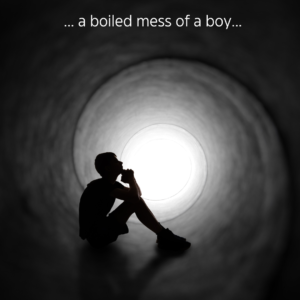News

Dear Director: The Positive Childhood Experiences Edition
Relationships are healing and what you do with your child may seem insignificant but its messages are big. It tells them they are included and that you care. It counters the negative things they have felt and heard and experiences and the times they have been left out. So, no big changes are required. Just give them a little time, and let them in.

What Your Adopted Child Would Like You To Know
I am going to be so mean to you. I am going to say horrible things to you. I am going to act dreadful and come up with and use the most hurtful words ever to spew at you. I will find out what your soft spots are and dig into them with cruel verbal daggers. You see I am trying to get you to abandon me ‘cuz I’m just not worth it. I am just a bad kid. That’s why my first family left me of course.

Dear Director: Decoding Your Adopted Child’s Words Edition
Dear Director,
Our adopted son is 15 now and he has been with us almost his entire life: 12 years. All of a sudden, he is talking to us with such disrespect and sabotaging happy and fun family events. We understand that he came from a tough place with serious neglect, but we don’t know what to do with this.
Please advise, Confused Parents

The Exodus That is Happening Today in Central PA
Since 2017, through the generosity of our donors, Jewish Family Service of Greater Harrisburg supported some of the most vulnerable members of our community through our Back on Track Initiative and Project Lift.
Back on Track offers emergency financial support to individuals and families who run the risk of “falling through the cracks,” due to short term financial problems. These emergency problems can often be eliminated by a “lift” in the form of a minimal one-time offer of financial support.Project Lift connects individuals and families with JFS services as well as with those provided by other social service organizations. These services can benefit those who may already be in the JFS system as mental health therapy clients but could also benefit from a “lift” of additional social services

Strategies That Widen That Window of Tolerance
We are all capable of widening our window’s of tolerance. We can become more accepting of hard emotions. The first step is awareness. Observing when you are in your window of tolerance and when you start to veer out of it. Noticing which direction your body typically moves when it becomes dysregulated is the next step. There are plenty more strategies to use to help you open your window of tolerance. Note that these techniques work for you, the adults and parents, and for you to teach and model for your children.

Explaining The Window of Tolerance
What is the window of tolerance exactly? Before you can learn to be aware of and actually regulate your window of tolerance, you need to understand what the window of tolerance actually is. It’s a concept named by renowned psychiatrist Dan Siegel. He defines the window of tolerance as the optimal zone of “arousal” for a person to function in everyday life. When a person is operating in this window, they can effectively manage and cope with their emotions.

How Trauma Impacts The Window of Tolerance
Learning how to regulate your brain and body is the key to staying within one’s window of tolerance. When an individual experiences childhood trauma, as most adopted children do, it significantly impacts how wide their window of tolerance is. Another factor effecting your child’s window of tolerance is how well they have resolved this trauma. Let’s delve into each of these factors to truly understand how your child’s past may still be influencing how they manage their emotions and natural stressors that come about in life. In other words, if you can understand how your child’s window of tolerance has been shaped by their trauma, then you can meet them with empathy and understanding. To help your children increase their tolerance for distress, after you put on your compassion hat, you can then help them learn techniques to make positive change. That window of tolerance can absolutely be widened with skills and practice.

Dear Director: The Window of Tolerance Edition
Dear Director,
Our 11-year-old adopted son gets really angry and irritable sometimes and acts sweet as pie others. We never know when he will fly off the handle. His therapist says he has a narrow window of tolerance due to his rough upbringing that included severe neglect. We are having trouble understanding exactly what she is talking about. I wish he would act consistently and not be so volatile. What do you think?
– Confused

Dear Director: The Summer Camp Edition
Dear Director,
Our 13-year-old daughter wants to go to our local camp this summer. I loved my time at summer camp when I was growing up but I didn’t experience all the abuse and trauma that she did. I am worried that her past will interfere in her being able to actually participate in camp. She does well at school but gets support from the Emotional Support teachers. Please advise.
Signed, Summer is Coming





